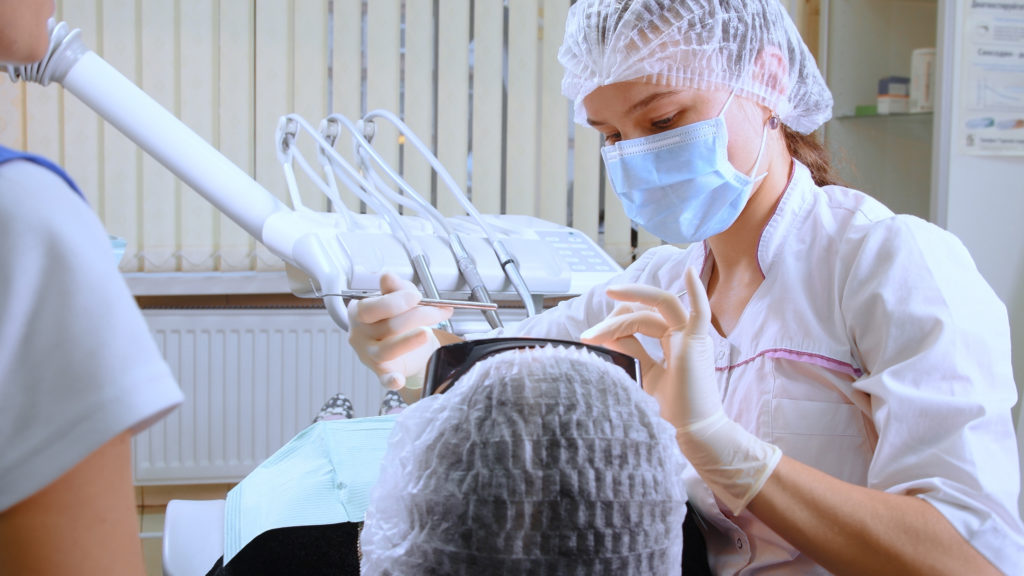Over the past several years, one market trend that has been felt across the healthcare industry is an increasing shift towards consolidation. Dental practices have been no exception – in recent decades, more dental practices have consolidated by joining Dental Service Organizations (DSOs) or larger practice groups than ever before. Covid-19 has accelerated the consolidation in the dental practice space, in some reports more than doubling the number of practices selling to DSO’s.
This consolidation has given dental practices more resources to increase profitability and provide better care – while shifting the burden of administration and management elsewhere and allowing dentists to focus on practicing dentistry. This has resulted in more dental practices going up for sale than ever before. But, before consolidating, dentists should understand more than just the market picture – they should understand the value of their own practice and how they can increase the value of their dental practice, both to increase their current profitability, as well as to improve their position and financials should they decide to pursue joining a group, or the eventual acquisition of other practices or sale of their practice.
“The decision for the private equity firms to delve into the dental market has made a big, big difference,” said Dr. Tony Stefanou, CEO and Founder of Connect The Dents, a consulting company that works with Medical Advantage to advise dental companies on mergers, acquisitions, and business decisions. “Dental practices are now gaining access to not only vertical financial resources but also that business mindset of how to operate a practice effectively.”
Regardless of if a dental practice chooses to affiliate with a DSO or private equity group, shifting market realities like increased regulations, rising taxes, and ballooning overhead have made it more important than ever for practices to look critically at how they can be the best-run organization possible. Established practices should always have a succession plan, as the market changes accelerate, dentists want to ensure their value today and in the future. So, what are some areas to consider to increase efficiency – and thereby increase practice value?
As a starting point, Stefanou recommends considering four steps to increasing the value of your dental practice – start with these basic areas of practice operations as targets for improving value.
How to Increase the Value of Your Dental Practice
1. Look At Hygiene Department Operations
While long seen as a “necessary evil” in dentistry, making sure operations in the hygiene department are running as efficiently as possible is crucial, because hygiene is one of the most consistent and reliable sources of income for a dental practice. “It’s the lifeblood of your practice,” said Stefanou. Optimizing outpatient care in hygiene is one of the most direct ways to increase the amount of money coming into your dental practice – key thing buyers or banks looking to lend to someone look for.
2. Review Your Overhead Expenses
Begin by looking at your suppliers – has your dental practice done the due diligence to shop around and ensure you are getting the best rates from supplies? This is one space where joining a DSO or group purchasing organization could prove useful if you have not already done so – as this will allow your practice’s purchasing power to increase and help you to negotiate a better price due to scale.
3. Review Your Active Patient Numbers
The number of active patients is one of the best barometers for the worth of a dental practice. Is your active patient base growing? Are these patients coming in routinely for hygienic appointments and other procedures? What is your patient acquisition strategy and rate? Continuing to focus on patient retention and acquisition is one of the most important ways to encourage an increase in growth and value at your dental practice.
4. Assess Your Real Estate Investments
If you are leasing, the value of your practice becomes a little more unclear, as it is tied up with other entities and costs. That is going to make things more complicated for both your own operations, as well as for negotiations with a potential purchaser. Consider real estate decisions very carefully – leasing may be more cost-effective up front, but it will make the valuation of your practice more of a “gray area” than if you own the property outright.
Of course, when attempting to determine and increase your practice’s value, there is much more to consider than just these four points – a reality many dentists are running into as more practices move to sell. Medical Advantage and Connect The Dents can help.
“Dentists are dealing with a lot more to run the business, and they’re starting to recognize that, financially and psychologically, it makes sense to have a support organization that can come in and handles all of the administrative and management tasks,” Stefanou said.
To learn more about steps you can take to determine and increase the value of your dental practice – whether you are currently intending to sell – contact Medical Advantage’s experts today.





